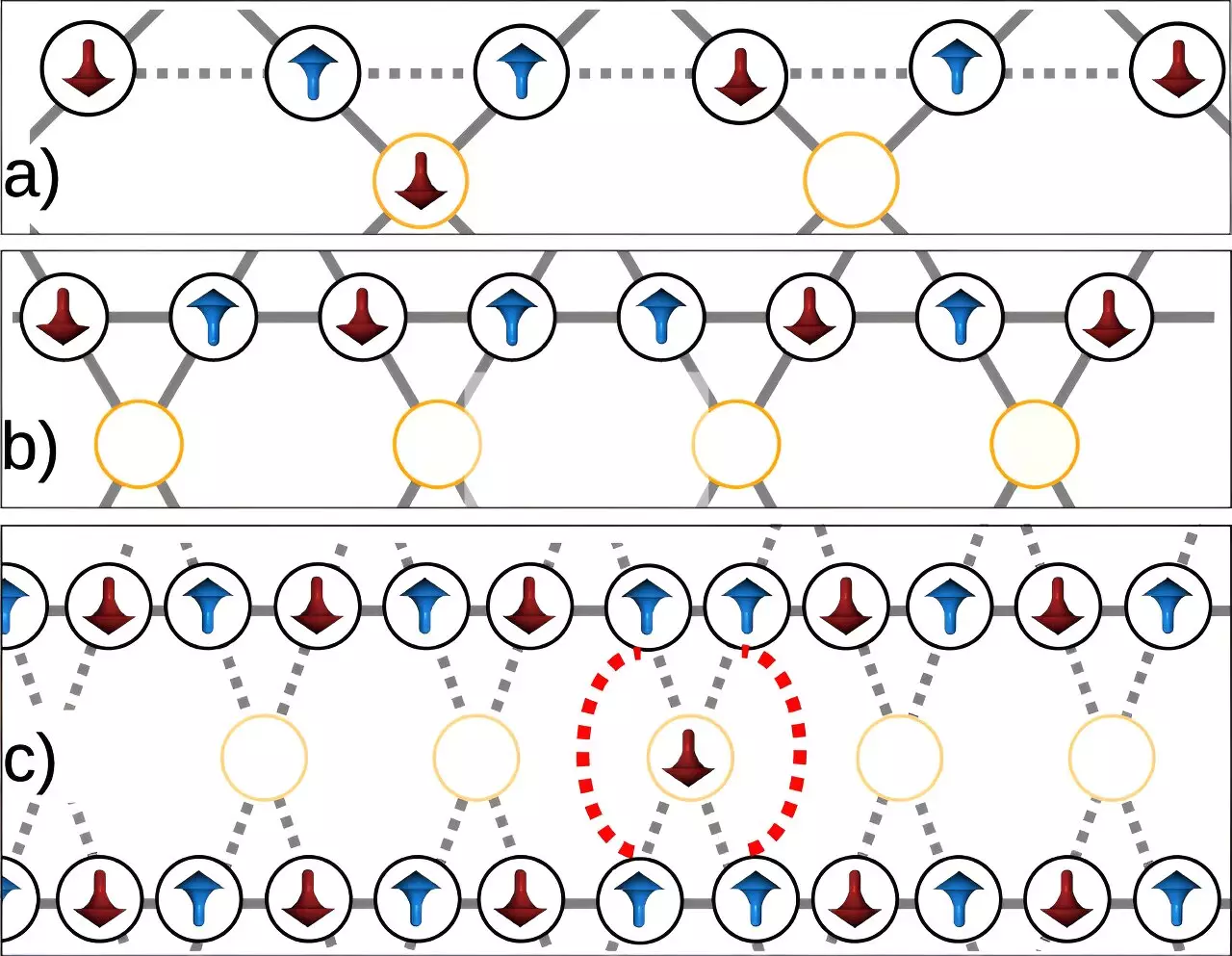Experimental research conducted by a joint team from Los Alamos National Laboratory and D-Wave Quantum Systems has shed light on the paradoxical role of fluctuations in inducing magnetic ordering on a network of qubits. In their study, the team aimed to understand the behavior of quantum systems by exploiting a dense network of interconnected qubits. This research has the potential to reduce the cost of quantum processing in devices, offering new insights into the construction of quantum systems.
The team of researchers investigated the complex interplay of approximately 2,000 qubits within an asymmetric hexagonal lattice. They focused on factors that typically induce disorder on magnetic moments, including the small magnetic field created by the superconducting qubits. By introducing fluctuations driven by both thermal effects and quantum effects, the team was able to experiment with entropy, magnetic moments, and disorder on the designed magnetic lattice.
The results of the study challenged conventional assumptions about the relationship between disorder and entropy. Contrary to expectations, the team found that configurations with a clustered distribution of defects emerged as the more likely state under certain physical conditions. This counterintuitive argument suggests that in quantum systems, ordered states characterized by specific patterns can emerge, even in the presence of seemingly disorder-inducing factors. This phenomenon is akin to the “order by disorder” process.
The research provides valuable insights into the mechanisms and physical conditions leading to defect clustering. By observing in detail how fluctuations influence these processes, the team believes they can guide improvements in the construction of quantum systems. The idea of promoting order by adding thermal and quantum fluctuations may seem paradoxical, but the study’s findings highlight the importance of considering these fluctuations to optimize the performance of quantum systems.
In the future, the development of the D-Wave quantum platform and experimental capabilities will enable researchers to further focus on the role of quantum fluctuations. By disentangling them from the concurrent influence of thermal fluctuations, scientists can gain a deeper understanding of the behavior of quantum systems. This understanding will pave the way for advancements in quantum computing, offering enhanced performance and efficiency.
The joint research from Los Alamos National Laboratory and D-Wave Quantum Systems provides valuable insights into the role of fluctuations in inducing magnetic ordering on a network of qubits. By challenging conventional assumptions, the study demonstrates the emergence of ordered states in quantum systems, even in the presence of seemingly disorder-inducing factors. This research opens up new possibilities for the construction and optimization of quantum systems, ultimately leading to advancements in the field of quantum computing. With further developments and advancements, quantum fluctuations can be harnessed effectively to unlock the full potential of quantum systems.


Leave a Reply